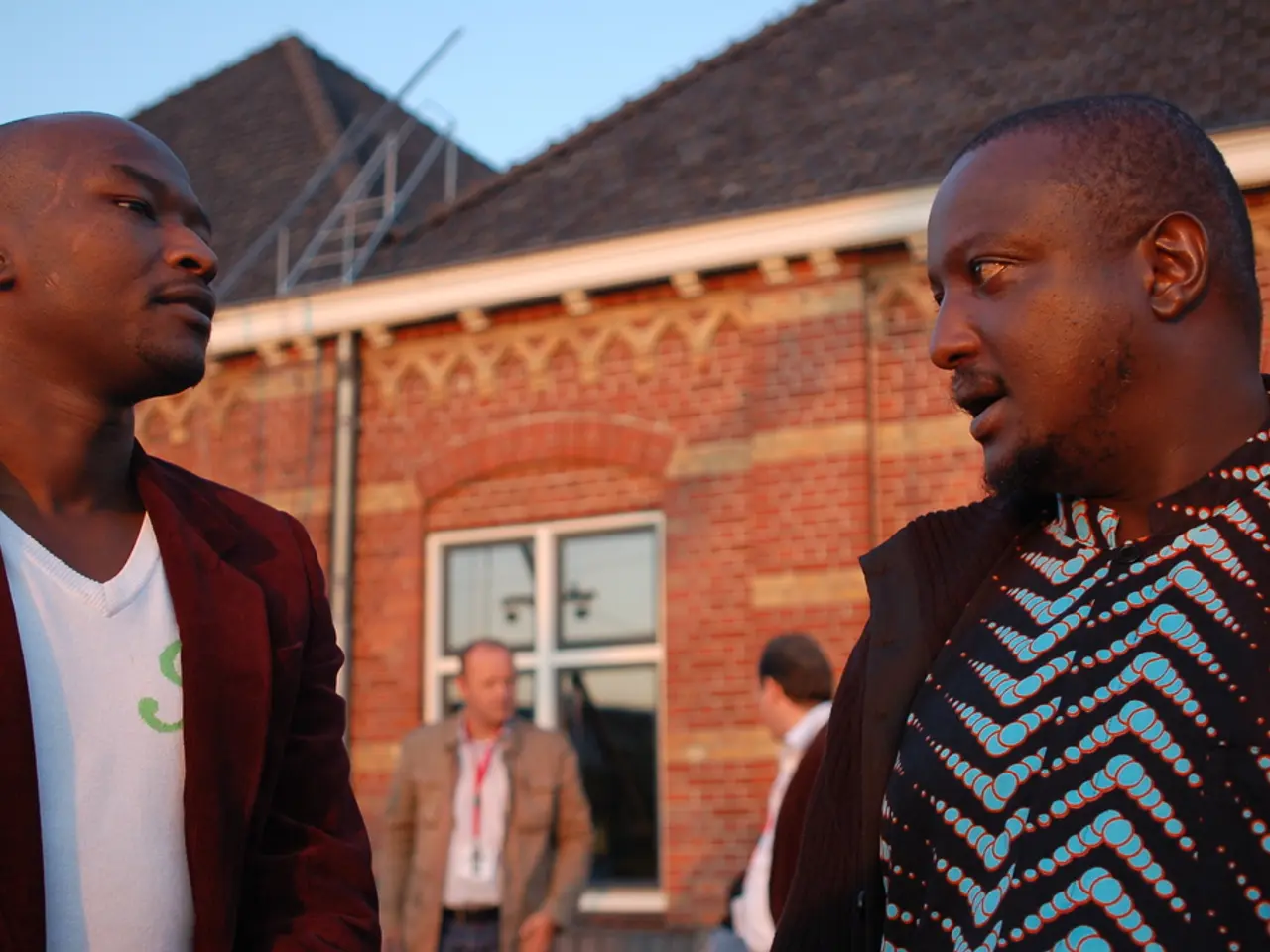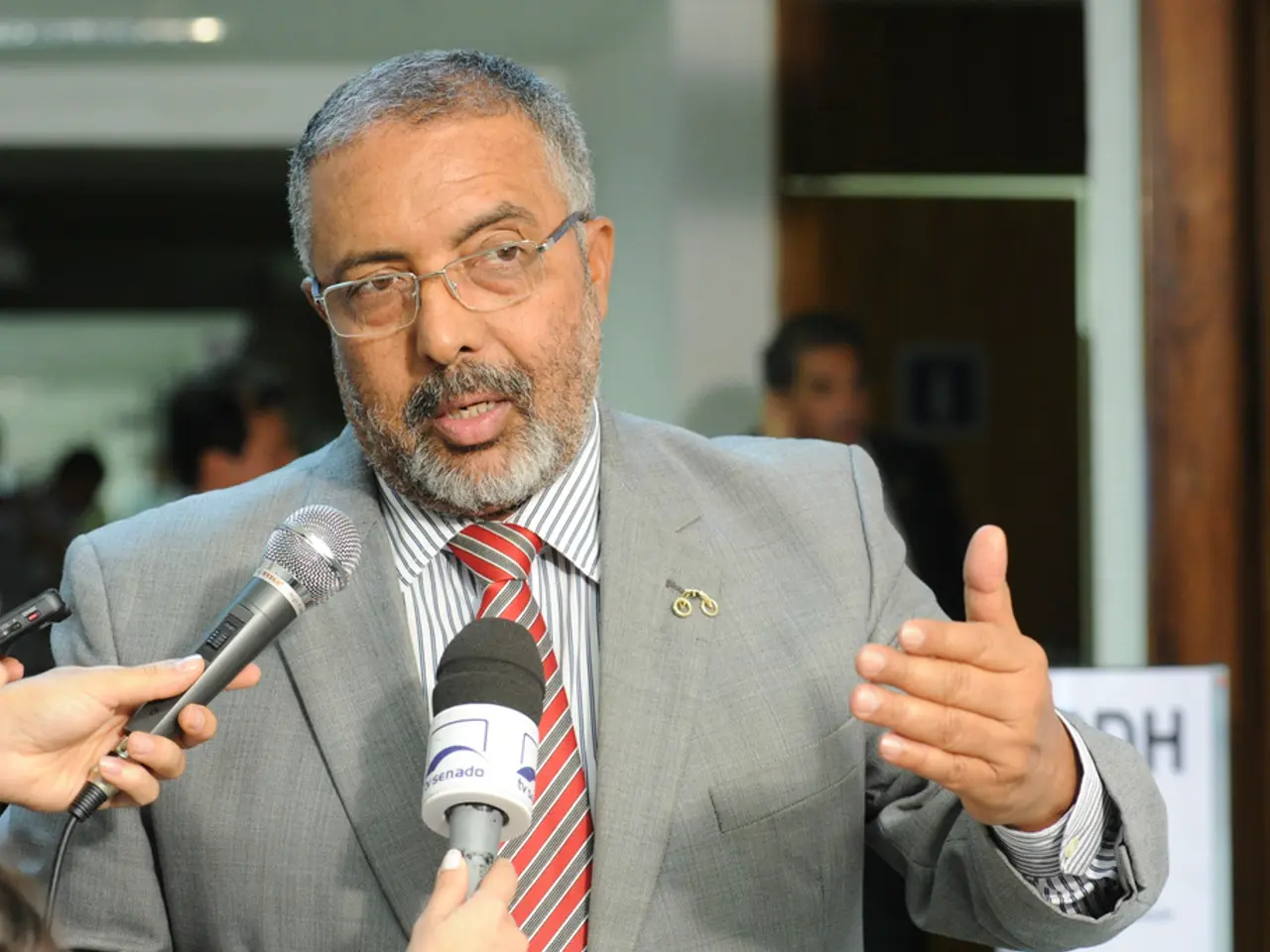Union to deliberate on Israel policy in a private session
The European Union (EU) is currently grappling with internal division and a lack of unified consensus regarding the federal government's Israel policy, particularly on the arms embargo against Israel. This political impasse was highlighted by the recent decision of Germany to impose a partial arms embargo, a move that has received both praise and criticism within the Union.
Jürgen Hardt, chairman and spokesman on foreign affairs, defended the decision, calling it "inevitable". However, Roderich Kiesewetter, deputy chairman of the AG, criticized it as a "serious political and strategic mistake by Germany". Matthias Hauer, Parliamentary State Secretary in the Federal Ministry of Research, also joined the chorus of critics, calling the government's decision a serious mistake and a disastrous signal.
The current situation has prompted a clarifying meeting among foreign policy experts of the CDU/CSU parliamentary group. The meeting, scheduled for Sunday, will discuss the current international political developments, including the change in Israel policy by Federal Chancellor Friedrich Merz. The meeting's significance lies in its spontaneous gathering in the middle of the summer break, indicating the sensitivity of the topic.
The EU's inability to reach a collective decision on the matter has allowed individual member states to act independently. Slovenia was the first to unilaterally ban the import, export, and transit of arms and military equipment to and from Israel, citing Israel’s grave human rights violations. Germany followed suit, announcing a partial arms embargo, halting military exports that could be used in Gaza.
However, not all member states share this view. Hungary, for instance, has opposed such bans, invoking Israel’s right to self-defense and emphasizing strategic ties. This internal disagreement has hindered the EU from imposing a collective arms embargo under its Common Foreign and Security Policy, which requires unanimity.
Across the EU, criticism is mounting from various quarters about the continuation of trade, arms exports, and cooperation that could contribute to what many EU members and international actors view as violations of international law by Israel, particularly regarding the occupied Palestinian territories. Human rights organizations urge member states to suspend all forms of cooperation with Israel that support these violations, including arms trade.
The Chancellor's decision not to export arms that could be used in the Gaza Strip has caused controversy within the Union. Carsten Müller, a CDU member of the German Bundestag, sharply condemned the government's decision, emphasizing the importance of security policy cooperation with Israel. The Young Union has also voiced their disapproval, adding to the internal discord.
Despite the criticism, an Israeli historian has welcomed the decision of the black-red federal government. Vice-Chancellor Lars Klingbeil supports the suspension of arms exports, but the CSU was not involved in the decision and was surprised by it.
In summary, the EU faces internal political paralysis on a collective policy regarding Israel, but a growing number of member states are taking independent measures such as arms embargoes, reflecting deep concern and criticism about Israel’s actions and the EU’s inability to respond cohesively. The upcoming meeting among foreign policy experts is a significant step towards addressing this divide and finding a unified stance within the Union.
- The debate on the EU's policy-and-legislation regarding Israel's affairs, specifically the arms embargo, is intensifying, with general-news outlets reporting increased criticism from various quarters about the continuation of trade, arms exports, and cooperation that could contribute to violations of international law.
- The upcoming meeting among foreign policy experts of the CDU/CSU parliamentary group is crucial (politics), as it aims to discuss the recent independent measures taken by several member states, such as arms embargoes, and find a unified stance under the EU's Common Foreign and Security Policy, which requires unanimity.








